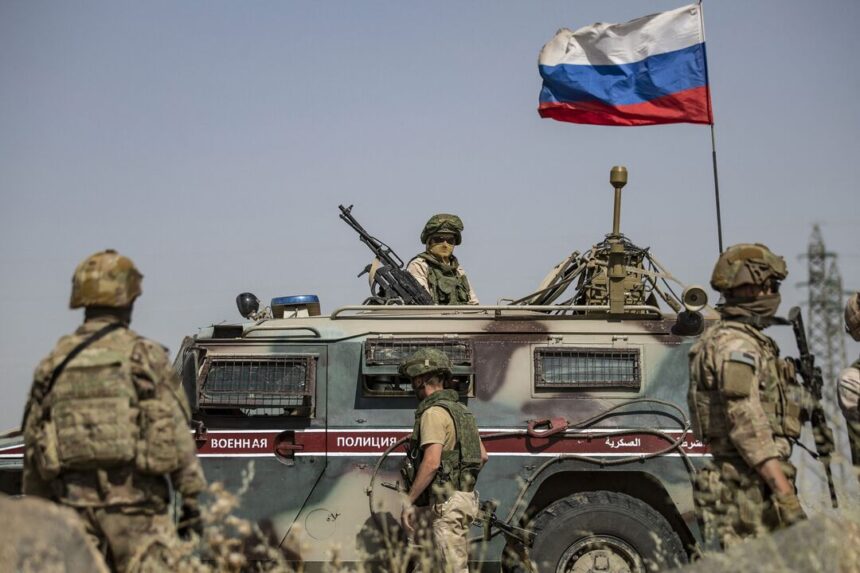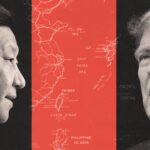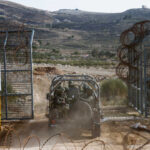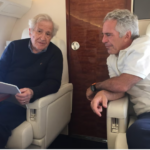Summary by Geopolist | Istanbul Center for Geopolitics:
Over the last decade, Russia has quietly—but steadily—planted its flag in Libya. While global attention focused on Syria, Ukraine, and the growing East-West divide, the Kremlin was hard at work in North Africa, using Libya’s chaos not only to reinsert itself into the region but to build a launchpad for a broader African strategy.
This report is a sobering exploration of how Moscow has used Libya as a testing ground—applying a repeatable formula to penetrate, influence, and exploit fragile states. That formula unfolds in three deliberate stages: cultivation, Wagnerfication, and domestication.
Cultivation: Entering Through the Side Door
Russia didn’t burst through Libya’s front gate. It knocked—quietly, cautiously—testing the waters. In the years following Gaddafi’s fall, Libya descended into civil war and institutional collapse. This vacuum gave Moscow an opportunity.
At first, Russia played multiple hands. Diplomats courted various factions, businessmen dangled old contracts, and regional actors like Ramzan Kadyrov built bridges through cultural diplomacy. Moscow positioned itself as a neutral player—presenting itself as both peacemaker and potential partner, particularly to those disillusioned by Western involvement.
But behind this façade of balance was something more strategic: Russia was mapping Libya’s fractured landscape, looking for vulnerabilities to exploit and actors it could co-opt.
Wagnerfication: Boots on the Ground, Denials in the Air
When diplomacy and charm had run their course, Russia shifted tactics. Enter the Wagner Group—the shadowy mercenary force that became Russia’s muscle on the ground. Though technically a “private” military company, Wagner was always a thinly veiled extension of the Russian state, operating with the blessing (and funding) of the Kremlin.
Wagner backed General Khalifa Haftar, a former Gaddafi-era general trying to wrest control over eastern Libya. With Wagner’s help, Haftar gained battlefield traction, and Russia gained access to military bases, oil terminals, and—crucially—smuggling routes.
This wasn’t just about Libya. Wagner turned the country into a logistical hub, supporting Russian activities across Africa, from Sudan to Mali. Arms, fighters, and influence flowed through Libyan territory like water through an open faucet.
At the same time, Wagner flooded Libyan social media with propaganda, manipulating public opinion and manufacturing support for its preferred candidates. The goal was never just military control—it was narrative dominance too.
Domestication: Owning the House
Once Wagner had secured the foundations, Moscow moved to furnish the house. This is where “domestication” comes in—Russia’s process of entrenching itself inside Libya’s institutions, economy, and power networks.
The relationship deepened, especially with Haftar’s son, Saddam, who helped Russia turn smuggling into a business empire. Libyan oil and fuel were rerouted, sometimes directly financing operations elsewhere. Human trafficking networks—some involving flights from Syria to Benghazi—became part of a larger machinery that combined profit with geopolitical leverage. Migrants became pawns in a game of pressure against Europe.
By 2024, Libya wasn’t just another stop in Russia’s foreign policy. It had become a staging ground—Russia’s African headquarters. The Wagner brand may have been replaced with “Africa Corps,” but the mission remained the same: entrench, exploit, expand.
A Fragile Grip on Power
Yet, for all this, Russia’s position in Libya isn’t as solid as it might appear. Its power is deeply tied to its proxies—particularly the Haftar family—and its presence lacks legal legitimacy. Unlike Turkey, which has official agreements with Libya’s internationally recognized government, Russia’s forces operate in the shadows, dependent on the continued chaos and division within the country.
And while the Kremlin has been effective in exploiting disorder, it has few real tools for creating stability. The more it entrenches, the more it relies on a network of warlords, smugglers, and corrupt elites whose interests often diverge from Russia’s own.
What Can Europe Do?
According to the author, Russia’s role in Libya is not just a regional nuisance; it’s a strategic threat. If left unchecked, it will continue to undermine efforts in Ukraine, destabilize Africa, and erode the international norms Europe claims to uphold.
The solution, however, isn’t just about pushing Russia out—it’s about offering a better alternative. That means:
- Targeting the financial and smuggling networks that sustain Russia’s presence.
- Enforcing arms embargoes and sanctions more seriously.
- Rebuilding alliances with regional powers like Algeria, Egypt, and Turkey.
- Reclaiming the information space from Russian disinformation.
- And most importantly, supporting Libya’s own path to unity, legitimacy, and sovereignty.
The Bigger Picture
Russia’s playbook in Libya has echoes across Africa. From Niger to Sudan, Moscow is testing and tweaking the same formula: find the cracks, exploit the chaos, and offer security in exchange for loyalty and access.
Libya, then, is not an isolated case—it’s the blueprint. And if Europe wants to push back against Russian influence on its southern doorstep, it must understand this playbook, expose its weaknesses, and compete with a coherent, values-driven strategy of its own.
This report isn’t just an analysis of Libya—it’s a wake-up call. The bear has come to tea. The question now is whether Europe will respond, or simply keep the door ajar.
Read more here.







